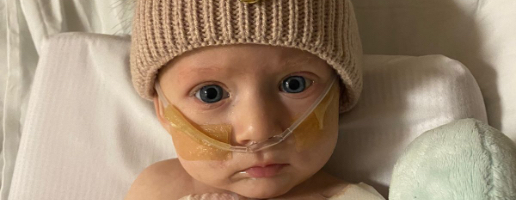Online privacy vs safety: The delicate balance we have to get right with our kids!

The online world has brought a whole new complexity to our parenting role. We must already make sure that our children eat veggies, sleep for 10 hours, play outside, wear sunscreen, learn intellectual, emotional and physical skills, and generally grow up to be fully functioning adults in the offline world. However, we now also have to manage their interwoven online world as well.
Balancing our teenagers' online privacy and safety
Parents must navigate the fine line between knowing what is going on in their child's online life and being accused of 'spying on their child'. This makes parents feel increasingly unsure. Some parents lean into the problem, treating it like other teen-parenting issues - complex but solvable if grounded on your family values and beliefs. However, uncertainty about the possible infringement of their children's privacy rights is causing many other parents to do nothing, or to shy away from monitoring their teenagers' online lives. This leaves these children vulnerable to having to navigate the host of online hurdles and danger points on their own.
It is a balancing act
Teens will naturally raise their right to privacy as an argument against parents' duty to check in and check up on their child's online life. The Verywell Family team of physicians and family health experts, point out that too little monitoring can leave teenagers without the help and support they need to make safe decisions about their life and their relationships. However, hovering over them and demanding too many details can send the message that you don't trust them and can end up creating more conflict.
To successfully mentor and guide your teenager in their online life, you need to try and create a trusting environment. This is an environment where your teenager can get the support and advice they need to learn to make good decisions and responsible choices, as well as the space and privacy they need to build confidence and independence.
Sounds easy? No, it's not.
Here are some tips to guide you.
Always put safety first
In case you are in any doubt, your child's safety and mental health always outweighs any privacy argument. It's an unavoidable fact that there is no privacy online and every comment, emoji, post and search contributes to your child's digital footprint.
Also, it is your primary job as a parent to keep your children safe until they are old enough and have proven that they can do that for themselves.
Think about this example if you feel somewhat hesitant about getting involved with your child's online life:
If you suspected that your child was taking drugs, would you respect their privacy and leave them to it? Or, would you search their room for evidence and then sit down for a serious talk about the way forward and how you can help them through it?
Privacy next
Having said that, the desire for more privacy is a natural part of growing up. As teens get older, they begin facing big challenges, like learning what kind of person they are, where they fit in, and what they want to do in life. Up until around age 23, their brains are rapidly developing as they gain new thinking, emotional and social skills. It is only natural that they would crave more privacy and space from parents as they work these things out, but this needs to be balanced against their growing ability to manage themselves as they strive for independence and autonomy.
For parents during this unsettling time, it is useful to keep in mind the distinction between privacy and secrecy. Privacy is having the space to do something without being observed (such as taking a shower), whereas secrecy is more associated with deliberately and consciously hiding or withholding information. Privacy is healthy, but secrecy is often not because of its negative connotations or consequences.
When teens are given the privacy they need, it helps them become more independent and it builds their self-confidence. As their parent, you'll need to balance knowing what your teen is doing, especially online, with trusting your teen to have some privacy, and you must know when to step in!
While it is important to give teens the space that they crave, keep in mind that teens are not always ready to deal with the adult world alone. Their brains are still developing and they need your advice and support. It is not uncommon for teens to make quick decisions, which are not necessarily good ones, and they do not always think through the consequences of their choices.
Giving them privacy is not the same as giving them free rein, which almost always results in problems down the road. Your teen needs to know that you are present in their life and available for any kind of emotional support they need. So, you must find a way to balance their need for privacy and your need (and job as a parent), to look after their safety and security.
Finding the right balance
One way to think about where those boundaries must be, is to ask yourself what you really need to know and what you don't. For instance, you need to know where your teen is going, who they are going to be with, and when they will be home. But you don't need to know everything that they discussed with their friends while they were there.
The key is knowing what you absolutely have to know as a parent and the things you can allow your teen to keep private. Giving your teen some privacy in the offline world can pave the way for stepping into their online world when you need too, and could include:
- Asking before getting something out of their wallet or backpack.
- Giving them time alone.
- Knocking on the door before going into their room.
- Leaving their journals and notebooks alone.
- Letting them have private conversations with their friends or siblings without demanding a lot of details.
- Respecting the privacy of their room by not going through their things.
Of course, the best way to determine how much privacy and freedom your teen is ready for, is to gauge how responsible they are with their obligations. In other words, do they get to school on time, do their homework, respect their curfew and complete their chores? If they complete these things without a lot of nagging from you, you can probably loosen the reins a little bit.
Overall, there should be a direct link between the amount of responsibility and honesty that teenagers have shown and the amount of privacy they are allowed to have. And, if your teen messes up or violates your trust, allowing them a little less privacy for a period of time is a logical consequence.
A teen's need for privacy on social media is similar to their need for privacy in the physical world. As a parent, it is your responsibility to mentor and guide them to make sure they know what behaviour is safe and appropriate. You must also model appropriate social media use by not posting photos and information about yourself or your teen on your own feeds without their permission.
When it comes to their social media use, teens need to earn your trust just like other privileges. But once they have earned that trust, it's fair to give them more and more privacy so they can continue to mature and become more independent.
The difference between monitoring and spying
There are times when it may be appropriate to snoop on your teen. For instance, if you overhear them talking about dating violence, see them crying over an Instagram post or if you find a vape in their pocket while doing laundry, it is time to pry a little bit. Your job as a parent is to keep your children safe.
Behavioural changes are red flags for depression and anxiety. Issues with sleep and unexplained marks or bruises on their body are strong indicators that something harmful is happening in their lives. It is far better to become aware of the cause before you see the symptoms!
Checking in and checking up on your teen is not the same as spying on them or snooping through their phone. Parental controls on devices can be very valuable in sending you alerts on issues you really need to know about, before they affect your child's mental and physical wellbeing. And the conversation bridges that these alerts build, if used correctly, are often connections for life!
Staying connected to our teens as they navigate an increasingly complex online-offline world is difficult but ultimately one of the most rewarding and important jobs as a parent.
Related articles

Enzyme treatment for rare disease gives 12-year-old Kylie Victor new life
There is no cure for Hurler syndrome. This rare genetic disorder can result in children dying before they turn 10. It's therefore the greatest cause for celebration that, in August 2021, Kylie Victor celebrates her 13th birthday - and 7 years of successfully managing this syndrome.

Birth defects: Your questions answered
Birth defects are physical abnormalities or health problems that start while a baby is developing inside its mother's body. Also known as congenital disorders, birth defects can occur at any stage of pregnancy and are caused by a host of factors. Here we cover common areas of concern around birth defects.

Baby Mighty Mack's fight against acute myeloid leukaemia
On 13 May 2021, Mackenzie "Mighty Mack" Friedman was diagnosed with acute myeloid leukaemia (AML). Seemingly overnight, the perfectly healthy six-month-old became a very ill cancer patient in need of urgent treatment - and a bone marrow transplant.